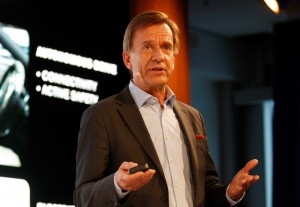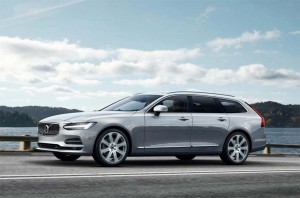
Hakan Samuelsson, Volvo Cars president and CEO, said the company's profits fell in Q1 due to higher tariffs and pricing pressure.
Volvo Cars’ operating profit and net income dropped during the first quarter despite increases in revenue and unit sales, the company reported.
“The continued growth in Volvo Car sales which we have seen in the first quarter clearly shows the quality of our product portfolio. We grew in all regions gaining market share while revenue rose faster than sales due to our product mix,” said Volvo CEO Hakan Samuelsson.
However, compared with last year, Volvo’s profitability was undercut by higher tariffs and increased price pressure in many markets, he said.
“The decrease in operating income and margin is a result of the increased pricing pressure, especially in the Chinese market, and increasing costs related to the new trade tariffs our industry currently faces,” Samuelsson said.
(Volvo bringing out full-electric XC40 by year’s end. Click Here for the story.)
Nevertheless, Volvo Cars expects continued growth in sales and revenue even though it also expects market conditions to put continued pressure on margins, he said.
Global first-quarter retail sales were up 9.4% to 161,320 cars, according to the company’s first quarter financial report, while net revenue increased by 10.7% compared to the same period a year ago.
(Click Here for the first look at the Polestar 2.)
The drop in S90 sales, which fell 19% in the first quarter, was mainly driven by higher import tariffs in the U.S. and a decline in the overall segment in most markets, Volvo reported.
Volvo cars operating profits drop by 19.3%, while net income also declined by 21.6% and company’s margins dropped to 4.6%, compared to 6.4% in 2018.
(Volvo raises $677 million with new bond issue. Click Here for the story.)
Volvo Cars sell vehicles in about 1,000 countries and has been under the ownership of the Zhejiang Geely Holding of China since 2010. Volvo Cars head office, product development, marketing and administration functions are mainly located in Gothenburg, Sweden. Volvo Cars head office for China is located in Shanghai.

